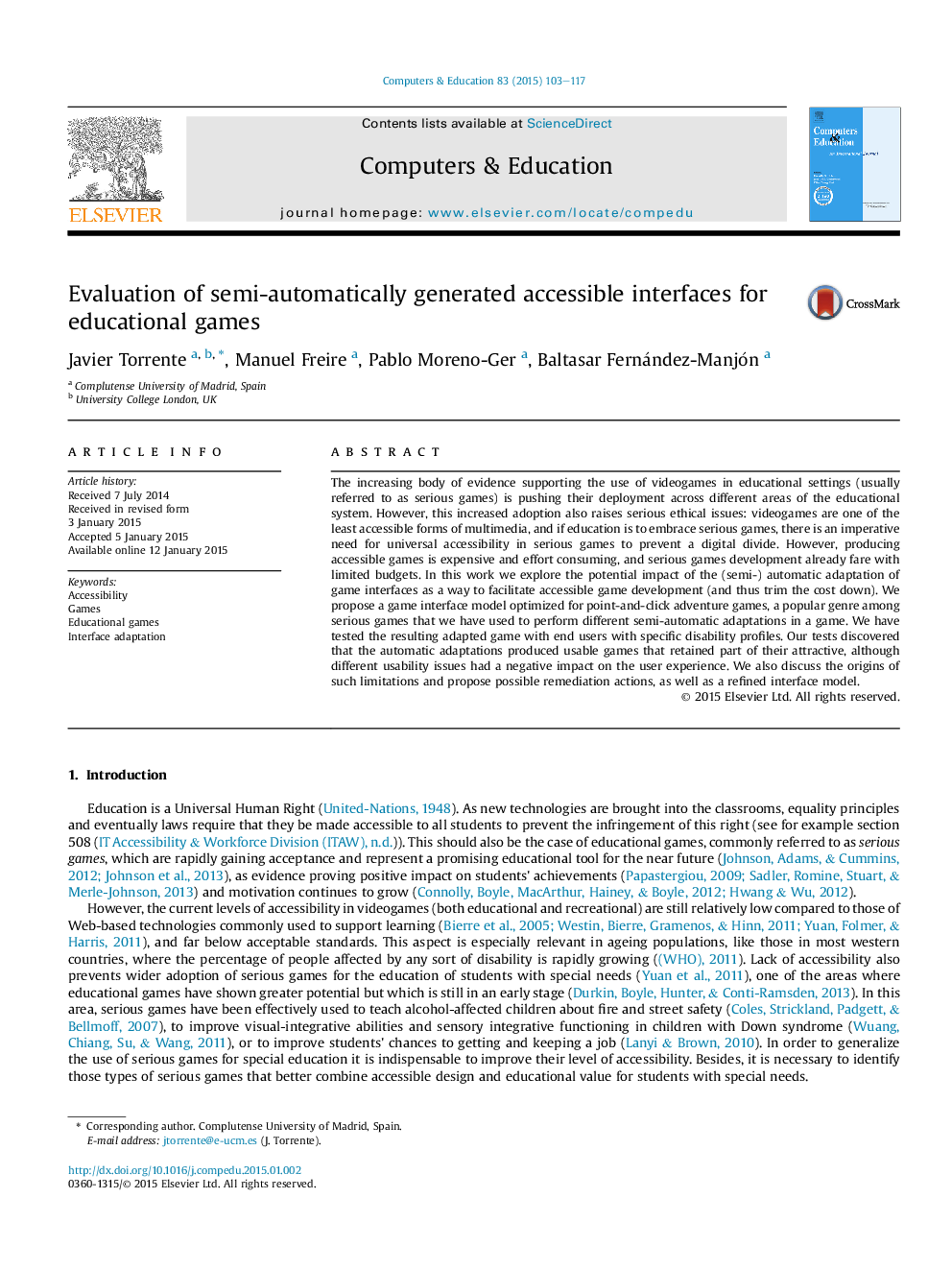| Article ID | Journal | Published Year | Pages | File Type |
|---|---|---|---|---|
| 348247 | Computers & Education | 2015 | 15 Pages |
•As interest in serious games grows their low accessibility poses a risk of digital divide.•Making digital games universally accessible is effort-consuming for developers.•We propose semi-automatic adaptation of games to reduce effort.•A game interface model is presented along with a case study with promising results.
The increasing body of evidence supporting the use of videogames in educational settings (usually referred to as serious games) is pushing their deployment across different areas of the educational system. However, this increased adoption also raises serious ethical issues: videogames are one of the least accessible forms of multimedia, and if education is to embrace serious games, there is an imperative need for universal accessibility in serious games to prevent a digital divide. However, producing accessible games is expensive and effort consuming, and serious games development already fare with limited budgets. In this work we explore the potential impact of the (semi-) automatic adaptation of game interfaces as a way to facilitate accessible game development (and thus trim the cost down). We propose a game interface model optimized for point-and-click adventure games, a popular genre among serious games that we have used to perform different semi-automatic adaptations in a game. We have tested the resulting adapted game with end users with specific disability profiles. Our tests discovered that the automatic adaptations produced usable games that retained part of their attractive, although different usability issues had a negative impact on the user experience. We also discuss the origins of such limitations and propose possible remediation actions, as well as a refined interface model.
Graphical abstractFigure optionsDownload full-size imageDownload as PowerPoint slide
